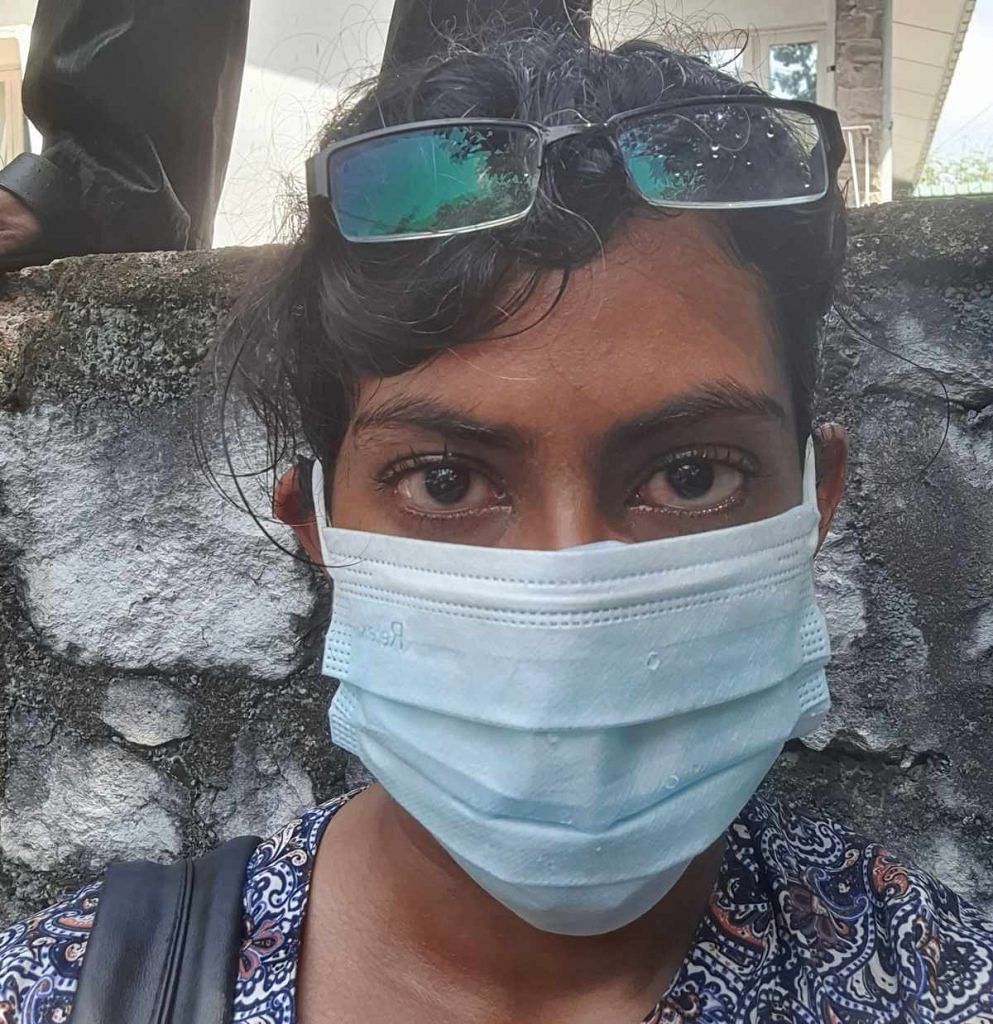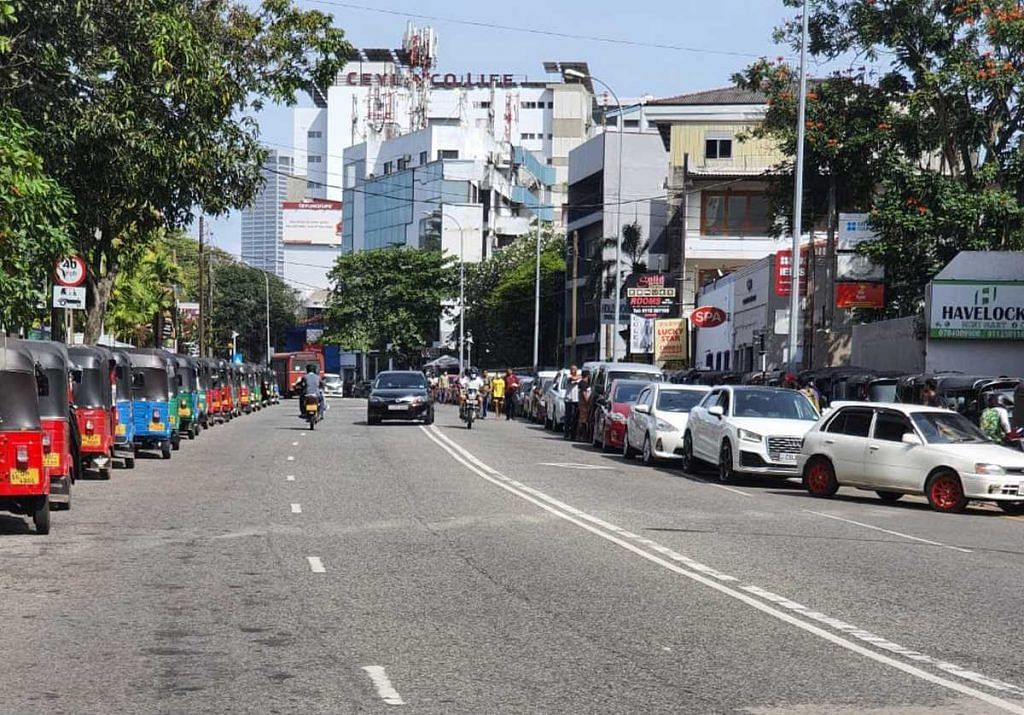Colombo: Needing a doctor is the worst thing that can happen in Sri Lanka right now. You don’t have to just deal with a sickness. You have to deal with the stress of finding transport to the doctor, wondering whether there’ll be a doctor around to treat you at all, and how much the whole harassing situation is going to cost you.
On top of that, there’s a growing shortage of medicines, so how good is a doctor’s prescription?
It appears that I had caught an eye bug somewhere between coming to Colombo from Delhi, and visiting the very crowded official state premises of Sri Lanka’s President and Prime Minister — thrown open to the public after the palatial buildings were stormed on 9 July by protesters, asking Gotabaya (and Ranil) to go home.
I was trying to self-medicate and thought that would cure it. But on 13 July my eyes took a further hit when I got more than a whiff of the tear gas that was fired to dispel crowds gathering outside the Prime Minister’s Office.
That night was an almost sleepless one — waiting for President Gotabaya’s resignation letter, which never came.
The next day, I woke up at 5.30am, with raw, red, bleary eyes that were only getting worse.

Colombo is not like Delhi where a Google search gives you 20 eye doctors with WhatsApp numbers you can message directly. No, in Colombo, you only get a handful of doctors and none of their contact details appears on Google. They are only accessible via a hospital.
I didn’t know what to do. Should I wait for pharmacies to open and get over-the-counter eyedrops? Should I go to a hospital? After an agonising wait till 9am, I decided to go to the nearest hospital’s OPD, because the eyedrops I had already bought in Colombo for 1,500 LKR (Rs 330) hadn’t worked.
Also Read: Carrom at PM house, swimming in President residence — Lull after storm in Sri Lanka
A lucky break, but not for long
Planning any kind of travel is a mini drama. There are next to no autos, and those that are on the road charge a bomb, either because they’ve paid black market prices for fuel (petrol is LKR 470, or Rs 104, for a litre, but the black market price is closer to LKR 2,500 — around Rs 555) or have spent days in a fuel line.
The only silver lining was that I had stayed overnight at a friend’s place in Colombo and only took two minutes to reach the Asiri Medical Hospital on Kirula Road.
These days, people here think about God a lot because everything seems out of your control. I thought of God and thanked him/her too for placing me near a hospital because my eyes were not getting better.
Less than 10 minutes in, I managed to see a doctor in the OPD unit.
‘We are so helpless…’
My relief only lasted a minute into consultation because the doctor didn’t seem too sure about how to treat me. She checked my blood pressure, my tongue, asked if I had allergies, pulled the blinds down and held an apparatus with a dim light up to my eyes. Then she said she couldn’t treat me because it wasn’t an allergy.
I have never liked hospitals because there’s never any happy news in them. This doctor was beginning to fluster me. She wanted me to see an eye doctor, but the hospital didn’t have one around. The eye doctor had taken leave because of the fuel shortage.
“We are also helpless,” the doctor said twice, sensing my frustration. “Maybe the eye doctor will come at noon. Maybe the doctor will come to another nearby hospital at 4. We can’t really say.”
I have to commend the doctor for her next acts of kindness though. She personally called the eye doctor and spoke about me and asked if I could have a telemedicine appointment. She then refunded the fee, and asked a nurse and the hospital’s public relations lady to help me either find another eye doctor at a different hospital or get a telemedicine appointment.
The second hospital that the PR lady checked had doctors available. It was called Golden Key Hospital and specialised in eyes, but was in Rajagiriya near the outskirts of Colombo.
I had to get there in one hour — which is not a problem once you find transport because the fuel shortage has left roads deserted.

That day, there was an auto parked right outside Asiri hospital, charging 600 LKR (Rs 132). I tried to get the price down closer to normal rates, but he said, “Miss, please find another, I’m giving a very fair price. We have to get petrol in the black market.” I gave in.
The eye doctor at the second hospital examined my eyes and said it was an infection and prescribed medicine for 15 days. I spent about 40 minutes there. The doctor’s appointment, the medicine, and the travelling cost just over 5,000 LKR (Rs 1,100).
I took two buses and walked the last kilometre to save money. It was noon by then and curfew had been re-imposed.
You do have to wonder how much longer Sri Lanka can continue this way — 5,000 LKR to treat a basic eye infection? That too after checking multiple hospitals for a doctor. What happens when you have a life-threatening emergency? Or if you have a serious chronic condition that needs long-term care? Public healthcare was already slow — I shudder just thinking of its current state.
Getting sick in Sri Lanka is now truly a rich person’s privilege.
(Edited by Asavari Singh)
Also Read: Charred coconut shell stoves, cycling — 5 hacks helping Sri Lankans survive economic crisis
